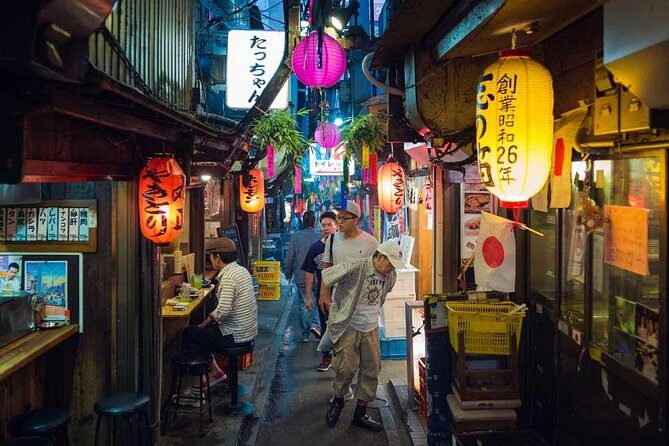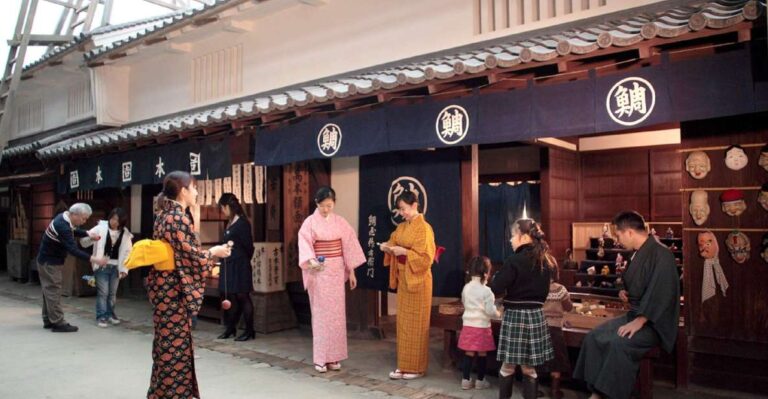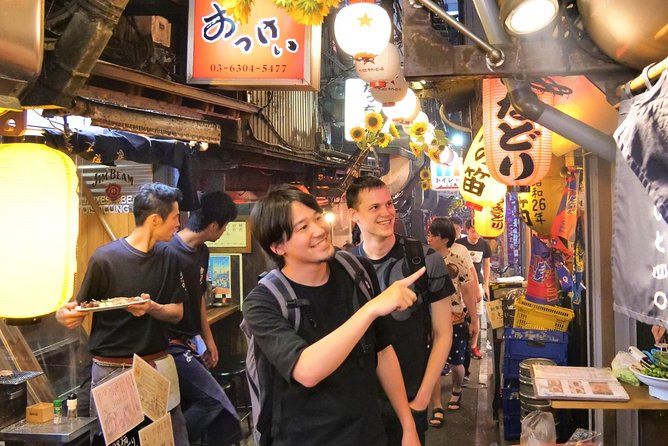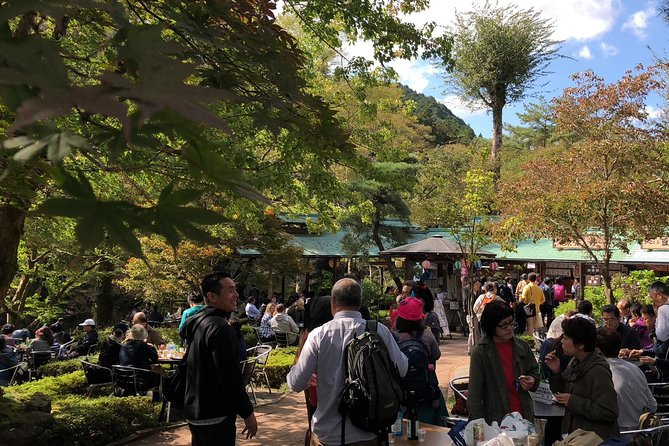In the heart of bustling Tokyo, amidst the towering skyscrapers and bustling streets, lies a hidden sanctuary where one can escape the chaos and find inner peace. Have you ever wondered how it feels to practice Zen Buddhism? Look no further than the traditional Japanese tea ceremony, a serene and captivating experience that allows participants to enjoy the fascinating history and philosophy of Zen.
Led by an English-speaking instructor, this intimate activity offers a chance to not only savor the flavors of traditional Japanese sweets and matcha green tea but also to explore the art and architecture associated with Zen Buddhism. With expert guidance, participants can even conduct their own tea ceremony, stepping into a world of tranquility and spiritual connection.
Whether you’re an avid tea enthusiast or simply curious about Japanese culture, this tea ceremony is a must-do experience in Tokyo.
Quick Takeaways
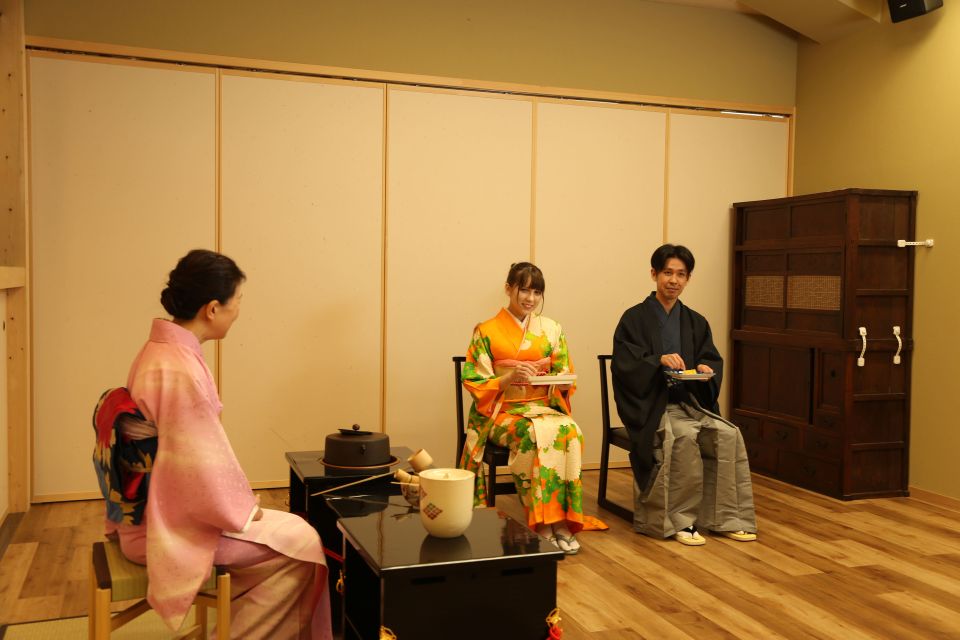
- Free cancellation available up to 24 hours in advance for a full refund
- Duration of the activity is 75 minutes
- Tasting traditional Japanese sweets paired with green tea
- Taking part in a traditional Japanese tea ceremony to find peace of mind and learn about Zen Buddhism
Tea Ceremony: A Peaceful Zen Experience
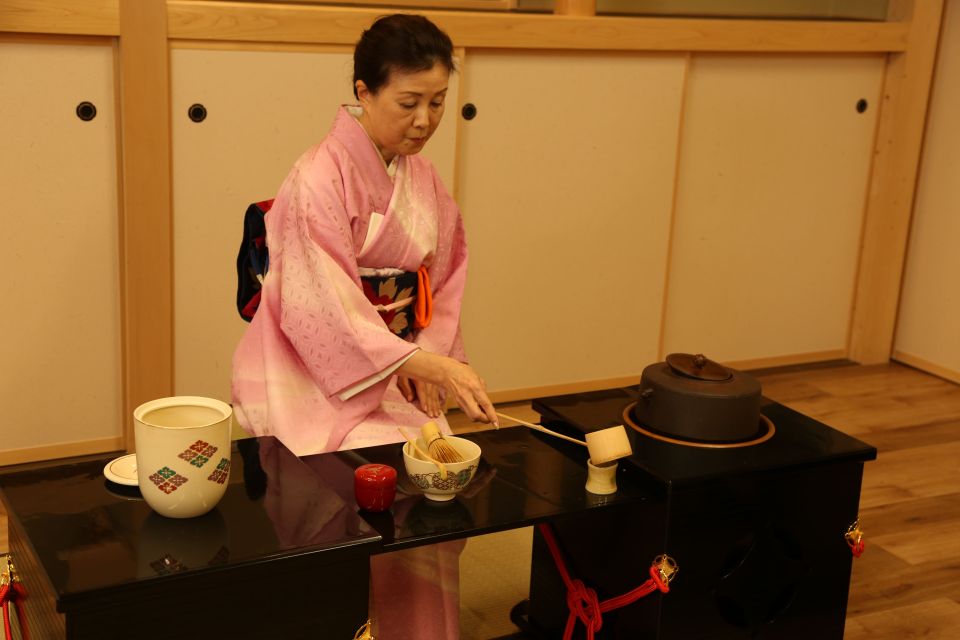
The tea ceremony offers individuals a peaceful and serene experience as they enjoy the practice of Zen Buddhism. It isn’t just a simple act of drinking tea, but rather a mindful ritual that involves precise movements, etiquette, and a deep appreciation for nature and beauty.
Tea ceremony etiquette is an integral part of the practice, emphasizing respect, mindfulness, and gratitude towards the tea, the host, and the surroundings.
Through the tea ceremony, you can cultivate mindfulness and find inner peace by focusing on the present moment and savoring each sip of tea. The act of preparing and serving tea requires complete attention and concentration, allowing participants to let go of distractions and anxieties.
The benefits of practicing mindfulness through the tea ceremony extend beyond the ritual itself, as it encourages a sense of tranquility, harmony, and balance in daily life.
Traditional Japanese Sweets and Green Tea Pairing
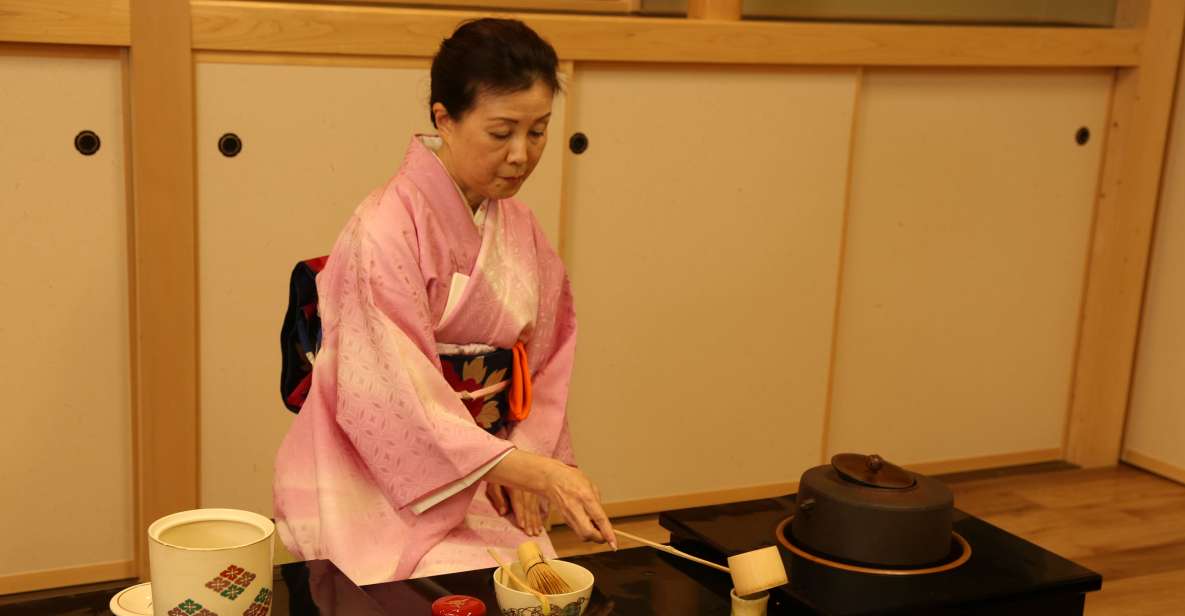
During the tea ceremony, participants have the opportunity to savor traditional Japanese sweets that are carefully paired with fragrant green tea. This pairing isn’t just about indulging in delicious treats, but it also holds significant cultural and symbolic meaning.
Japanese tea ceremony etiquette emphasizes the importance of harmony and balance in every aspect of the ceremony, including the pairing of sweets and tea. The sweetness of the traditional Japanese sweets is intended to complement the bitter taste of the matcha green tea, creating a harmonious balance of flavors. This pairing demonstrates the Japanese concept of ‘wa,’ which refers to the pursuit of harmony and unity.
On top of that, the matcha green tea itself holds great significance in the ceremony, as it’s considered the heart and soul of the ritual. Its vibrant green color represents vitality and purity, while its bitter taste symbolizes the transient nature of existence.
Exploring the Spirit of Zen in Japanese Art and Architecture
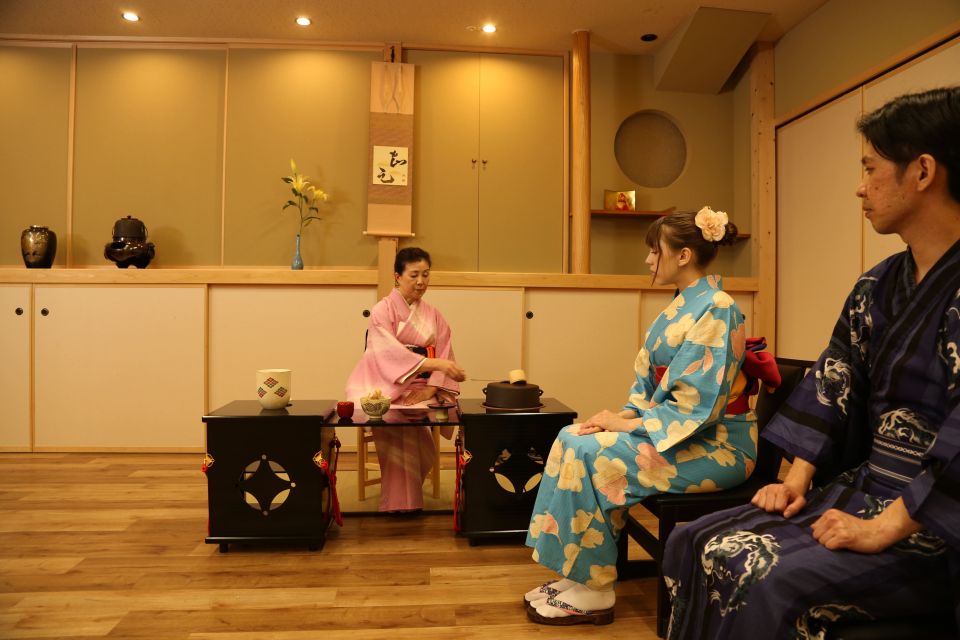
Zen Buddhism is deeply ingrained in Japanese culture, and its influence can be seen in various aspects of art and architecture. The impact of Zen Buddhism on modern Japanese culture is undeniable, particularly in the realm of art and architecture. Zen principles emphasize simplicity, minimalism, and mindfulness, which are reflected in the design and aesthetics of Japanese architecture.
Traditional Japanese tea houses, for example, embody these principles with their clean lines, natural materials, and serene atmosphere. The use of open spaces and natural light also contribute to creating a sense of tranquility and harmony.
Plus, Zen-inspired gardens, known as ‘karesansui,’ often feature carefully arranged rocks, gravel, and moss, symbolizing nature and inviting contemplation. The integration of Zen principles in Japanese architecture showcases the deep connection between spirituality and the built environment, creating spaces that promote inner peace and reflection.
The Role of Zen Buddhism in the Tea Ceremony
.jpg)
In the Japanese tea ceremony, Zen Buddhism plays a significant role in fostering a sense of inner peace and mindfulness. Zen Buddhism’s influence on Japanese culture is evident in the meditative aspects of the tea ceremony.
This ancient practice is more than just a simple act of serving and drinking tea; it’s a form of meditation that allows participants to cultivate a deep connection with themselves and the present moment. The tea ceremony encourages mindfulness, as every movement and gesture is performed with intention and attention to detail.
The serene environment, the rhythmic pouring of the tea, and the focus on simplicity and harmony all contribute to creating a meditative atmosphere. Through the tea ceremony, practitioners can experience a profound sense of tranquility and gain a deeper understanding of Zen Buddhism’s principles of mindfulness and presence.
Conducting Your Own Tea Ceremony With Expert Guidance
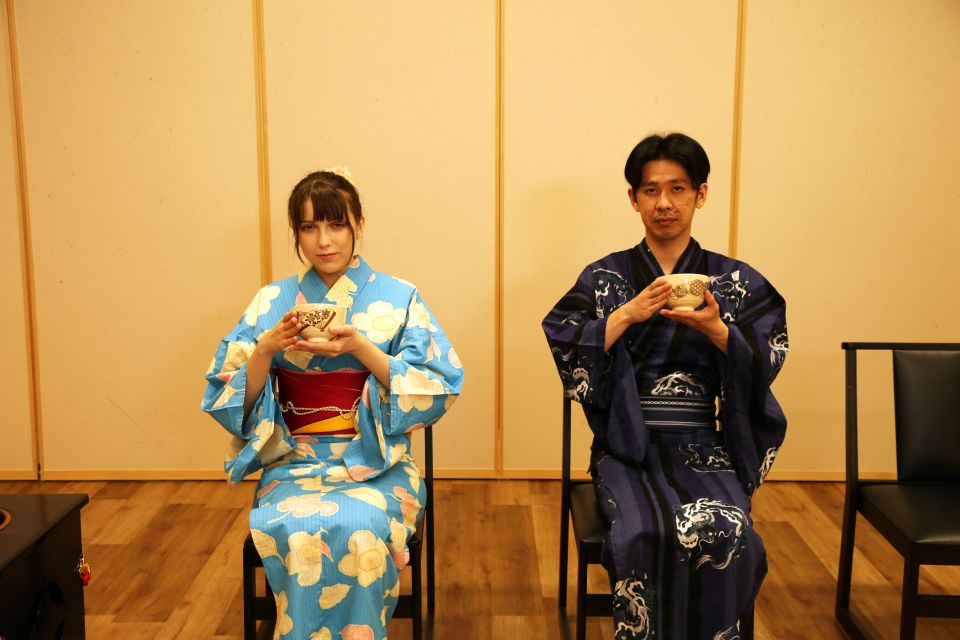
With expert guidance, participants have the opportunity to conduct their own tea ceremony, seeing the meditative practice and experiencing the profound tranquility it offers.
During the ceremony, you will learn traditional tea ceremony techniques, gaining a deeper understanding of the cultural significance of this ancient practice. Under the guidance of an instructor, you will have the chance to prepare matcha green tea and perform the accompanying movements, recreating the ceremony in their own unique way. They’ll also learn about the specific utensils used in the ceremony and how each aspect of the ceremony is connected to Zen Buddhism.
Understanding the Utensils and Rituals of the Tea Ceremony
.jpg)
During the tea ceremony, participants gain an understanding of the utensils and rituals involved in this ancient practice. Here are three key aspects they learn:
1) Understanding the history of the tea ceremony: Participants delve into the fascinating history of this traditional Japanese practice, discovering its origins and how it has evolved over time. They gain insight into the cultural significance of the tea ceremony and its enduring influence on Japanese society.
2) Learning traditional tea ceremony etiquette: The participants are taught the proper etiquette and manners to be observed during the tea ceremony. They learn the precise movements and gestures involved in serving and receiving tea, as well as the appropriate way to interact with the host. This knowledge allows them to fully appreciate the grace and harmony of the ceremony.
3) Familiarizing with the tea utensils: Participants become acquainted with the various utensils used in the tea ceremony, such as the tea bowl, tea scoop, and bamboo whisk. They learn about the symbolism behind each item and how they’re meticulously chosen and handled to enhance the tea-drinking experience. Understanding the significance of these utensils adds depth and meaning to the ritualistic nature of the tea ceremony.
Customer Reviews: Feedback and Insights
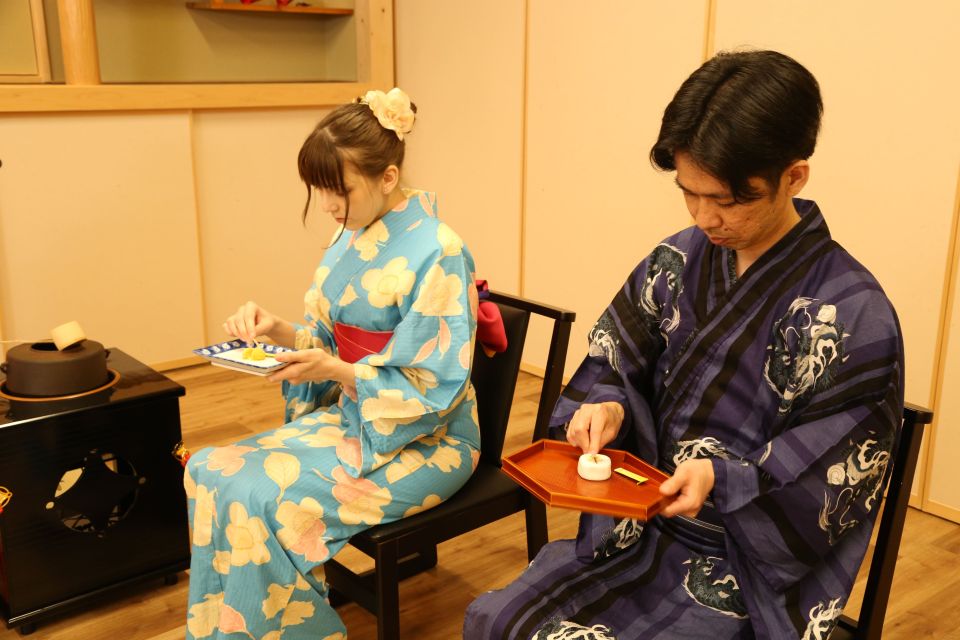
Customer reviews provide valuable feedback and insights into the experience of participating in a traditional Japanese tea ceremony. With an overall rating of 4.8/5 based on 43 reviews, it is clear that participants have a high level of customer satisfaction with this activity. The reviews highlight the cultural significance of the tea ceremony and its impact on modern times. Customers appreciated the venue’s ambience and accommodation for different needs, as well as the small class size that allowed for a more intimate and participatory experience. The opportunity to learn about Zen Buddhism and conduct their own tea ceremony with expert guidance was also mentioned as a positive aspect of the activity. The customer reviews reflect a positive and enriching experience that combines culture with a sense of tranquility and mindfulness.
| Review Summary | Value for Money | Positive Feedback |
|---|---|---|
| 4.8/5 | 4.4/5 | Venue’s ambience and accommodation for different needs |
| Small class size and opportunity to participate in the ceremony | ||
| Historical significance and impact on modern times |
Frequently Asked Questions
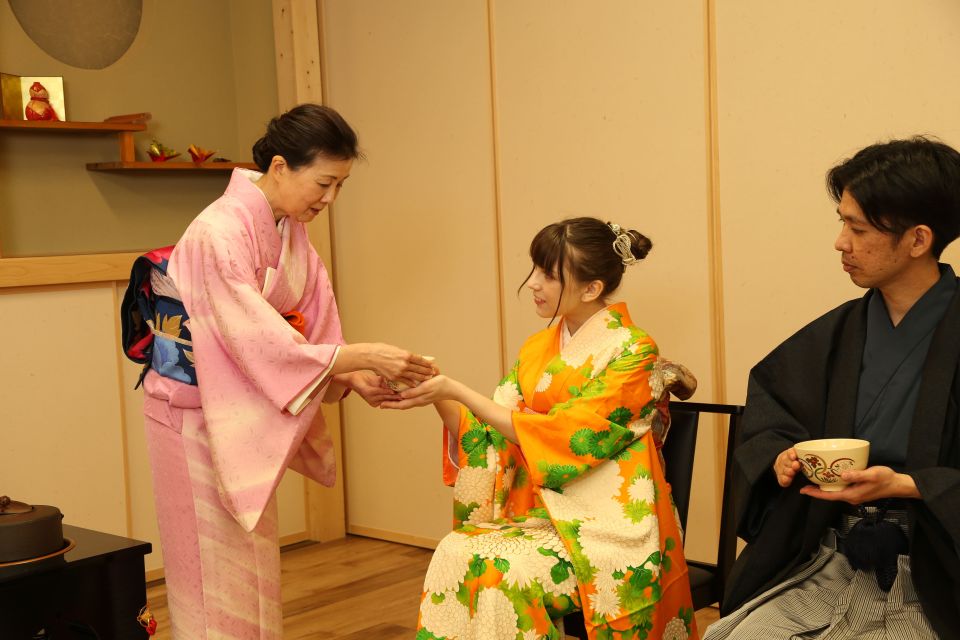
What Is the Cost of Participating in the Tea Ceremony?
The cost of attending the tea ceremony includes the opportunity to experience the cultural significance of this ancient practice. Participants can enjoy the spirit of Zen and indulge in traditional Japanese sweets and green tea.
Can Children Participate in the Tea Ceremony?
Children can participate in the tea ceremony, but there may be age restrictions depending on the tour provider. It is best to check with the tour operator beforehand to ensure children can join in on the experience.
Are There Any Dress Code Requirements for the Tea Ceremony?
There are specific dress code requirements and etiquette guidelines for the tea ceremony. Participants are expected to dress modestly and remove their shoes before entering the tea room, showing respect for the tradition and the host.
Can I Take Pictures or Videos During the Tea Ceremony?
Taking pictures or videos during the tea ceremony is generally not allowed, as it is considered impolite and disruptive to the peaceful atmosphere. It is important to observe proper etiquette and fully take in the experience.
Is It Possible to Purchase the Utensils Used in the Tea Ceremony?
Yes, it is possible to purchase the utensils used in the tea ceremony. Visitors have the opportunity to buy these traditional items as souvenirs or gifts, allowing them to bring a piece of the experience home with them.
The Sum Up
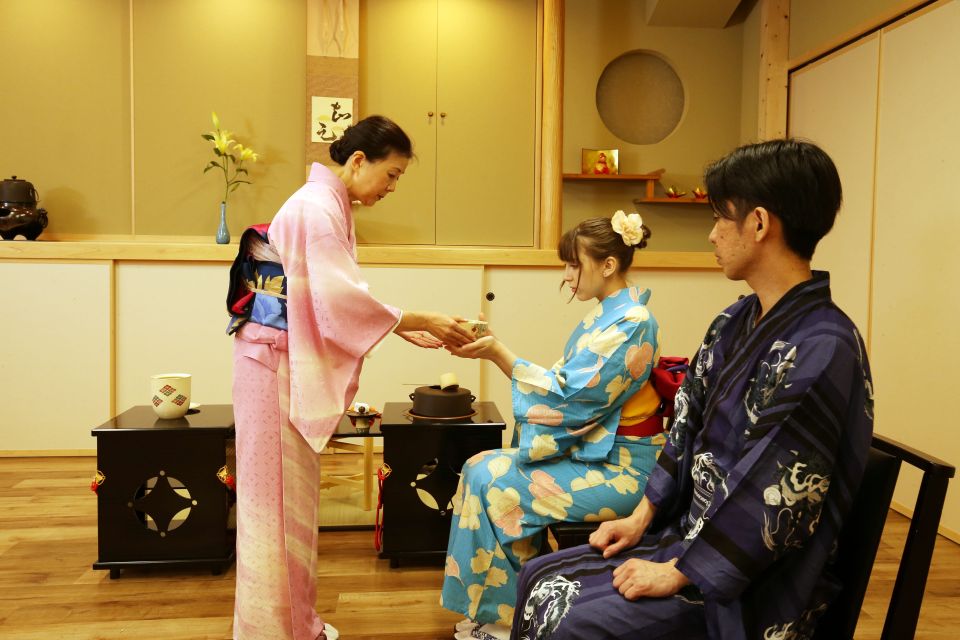
Enjoy the serene world of Zen Buddhism with a traditional Japanese tea ceremony in Tokyo.
This unique experience allows participants to not only taste delicious Japanese sweets and matcha green tea but also learn about the fascinating history and philosophy behind this ancient practice.
With the guidance of an English-speaking instructor, participants can conduct their own tea ceremony and connect with the spiritual essence of Japanese culture.
Don’t miss out on this must-do experience in Tokyo.
Where To Stay In Tokyo
Tokyo visitor levels are currently at an all-time high so make sure to book your hotels early. Tip most hotels booked with booking.com have free cancelation so book as soon as you know your date and you can always cancel if you change your mind.

